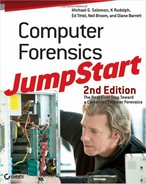1. How does an expert witness differ from a regular witness?
Answer: An expert witness possesses special knowledge or a skill in some specific area that a regular witness does not have. Regular witnesses may only testify to matters of fact or personal knowledge, but expert witnesses may also offer opinions to the court.
2. What should you do before you appear in court as an expert witness?
Answer: Expert witnesses must be completely prepared before appearing in court. Review all aspects of the case with your legal team and completely understand the scope of the case as well as your evidence. You may also want to attend a witness preparation school.
3. Will your résumé validate you as an expert witness?
Answer: No résumé by itself can validate your status as an expert witness. You’ll need to provide additional information regarding your education and degrees, professional training, certifications, related professional experience, and prior experience testifying as an expert witness.
4. What condition exists when you have personal or business reasons to find in favor of one party over the other?
Answer: When you have a personal or business reason to find in favor of one party over the other, you have a conflict of interest. Conflicts of interest should be avoided at all times, even if that means forgoing expert witness work.
5. What is the process of taking testimony and reducing it to written form for admission into court?
Answer: Depositions are a form of testimony that is reduced to written form (though usually with video recordings as well as textual transcripts).
6. What term describes the process when opposing counsel asks questions to cast doubt on your testimony?
Answer: Cross examination is the term used when opposing counsel asks you questions during your testimony.
7. Why should you bother dressing up when going to court?
Answer: Your courtroom appearance makes a statement to the judge and jury regarding your credibility, professionalism, and trustworthiness.
8. What are the three components of communication?
Answer: The three components of communication are: sender (person who prepares and sends message), message (the content you’re sending), and receiver (the person receiving the message).
9. Should you be explicit in your testimony?
Answer: All questions should be answered completely with enough detail to ensure that the judge and jury understand the evidence. Avoid lengthy or overly technical explanations.
10. What should you do when you see that you are losing you audience?
Answer: If you see that you’re losing your audience, ask for a break and talk the problem over with the legal team. When appropriate, try a different approach to delivering the information.
